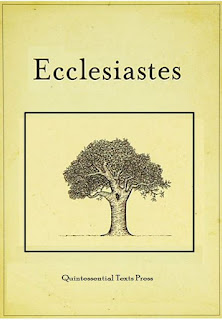Billy Liar.
I’m still talking to Dr. Feight,* only by phone. Once a week. On Tuesdays at four in the afternoon. He calls me.
“Okay,” he says. And I begin. Or if I don’t right away, he says, “What do you want to talk about today?” We’ve met this way five times, beginning the 10th of March. Today:
“Okay,” he said. “What do you want to talk about?”
“I have letters from Moira,” I said.** I waited. Then I said:
“I wrote to her that I was bored. I may have said ‘disaffected’ though I’m not sure exactly what that means. And she wrote back that she was, too. Bored.” I stopped. After a minute,
“Okay,” Dr. Feight said. “Go ahead.”
 “She asked if I’d ever seen the movie Billy Liar. She and her friend Lisa, a girl I’d known in college who died about the same time Moira did - she and Lisa had watched it again, they’d both seen it before. She didn’t say how.”
“She asked if I’d ever seen the movie Billy Liar. She and her friend Lisa, a girl I’d known in college who died about the same time Moira did - she and Lisa had watched it again, they’d both seen it before. She didn’t say how.”
“How they watched it,” Dr. Feight said.
“Yes.”
“I see,” Dr. Feight said.
“So I watched it.” After a minute:
“And?”
I said, “I asked her what she thought about it. Do you know it? It has Tom Courtenay and Julie Christie in it.”
“Yes.”
“She wrote that she found the characters oddly sympathetic. Oddly because none of them were real to her, the Peter Pan boy, the impossibly beautiful girl, the patronizing pater, the sympathetic mater, the potty grandmater, the rest: the strict boss, the mocking friends. And she wrote that she thought it was about freedom, how we want it, but on our own terms.
“So, Billy could run away to London with Liz, but he won’t. He might have to give up his fantasies. He doesn’t want to wake up with her next to him in bed. ‘A real woman with a real body.’ That’s what Moira wrote: ‘Think back to the beginning of the movie. He wants to wake up in his single bed with his toy soldiers made of air marching across the inside of his eyelids and the band playing the Ambrosian national anthem inside his ears. That’s what he’s going back to at the end. Liz is made out to be so desirable, isn’t she? - an adolescent male fantasy, except that she’s real. Fantasy doesn’t want real.’” I stopped.
“No?” Dr. Feight said.
I didn’t say anything for a minute because I wasn’t sure what this “No?” meant. Then I said, “She also wrote that it was a ‘coming-of-age movie.’ ‘Isn’t it?’ she asked. ‘The characters should already be of age. They’re in their twenties, I think. But they’re still “coming-of,” too. Aren’t they? Or, aren’t we all? We mature, we continue to mature, we revert, we get back on the right path - or another wrong one - we die. We fall off a cliff, our heart explodes - or our brain does; we step in front of a car or a roof tile falls on our head. Imagine a long list here: we go to war, we fight cancer but lose . . . we drink ourselves to death. So we die, however old or young, mid-career. (I mean ‘career’ in the sense of the verb, mid-hurtling-from-here-to-there-and-bouncing-off-and-back-again: The car careered off the road and into Farmer Brown’s unsuspecting Guernsey asleep on her feet; the impact turned it on its side, and it rolled slowly onto its roof.)’
“She goes on: ‘It’s Sunday where you are, I think. I’m also thinking, hoping, that you are safe, for the moment anyway, maybe in your bed with your soldiers. It is Sunday here, too. Always. And never. The churches are always open, and there are no churches. (See the end of Revelation somewhere.)
“‘Here is what I am sorry about,’” she writes. “‘Your friend’s brother, Hamlin’s, tries to kill himself, and you think of me. Axel and Nils’ sister, the middle one, May, right? succeeds - I know that was some time ago, but you thought of me. Every time something like this happens, you think of me. And I’m sorry you think of me that way. I know you can’t help it. I know you try very hard to keep me alive so you don’t have to. I am grateful. And I am sorry.
“‘Lisa says, “Hi!”’
“There’s where it ends,” I said. “Except for the closing, as she often does, ‘The end. Love, Moira.’”
“I see,” Dr. Feight said.
04.07.20
_______________








